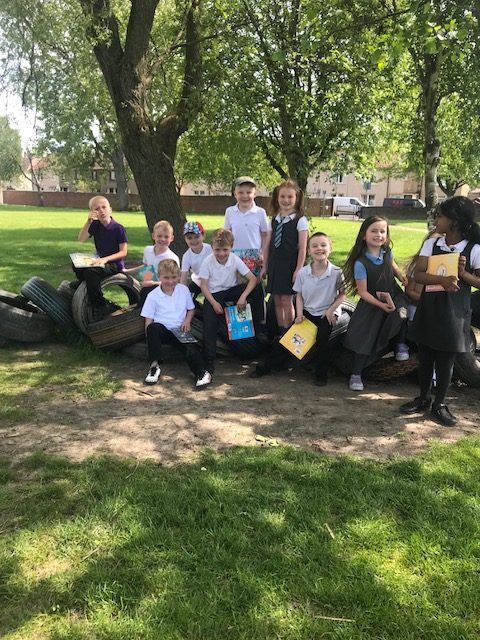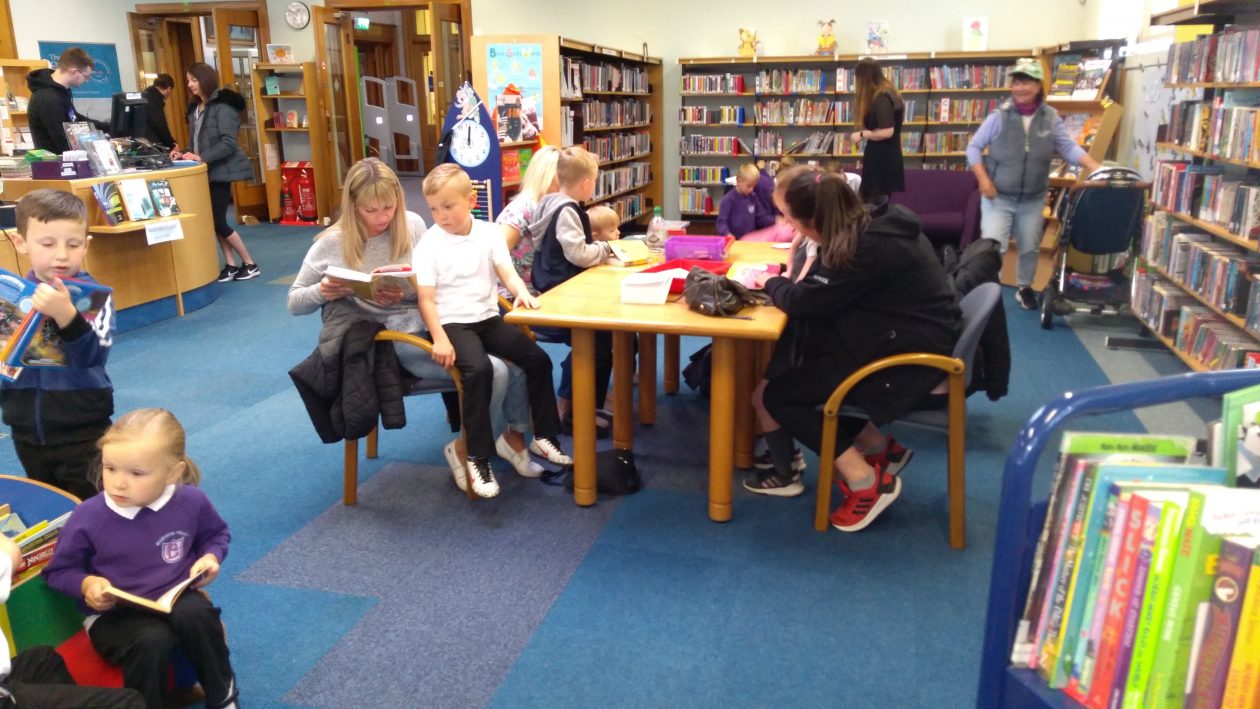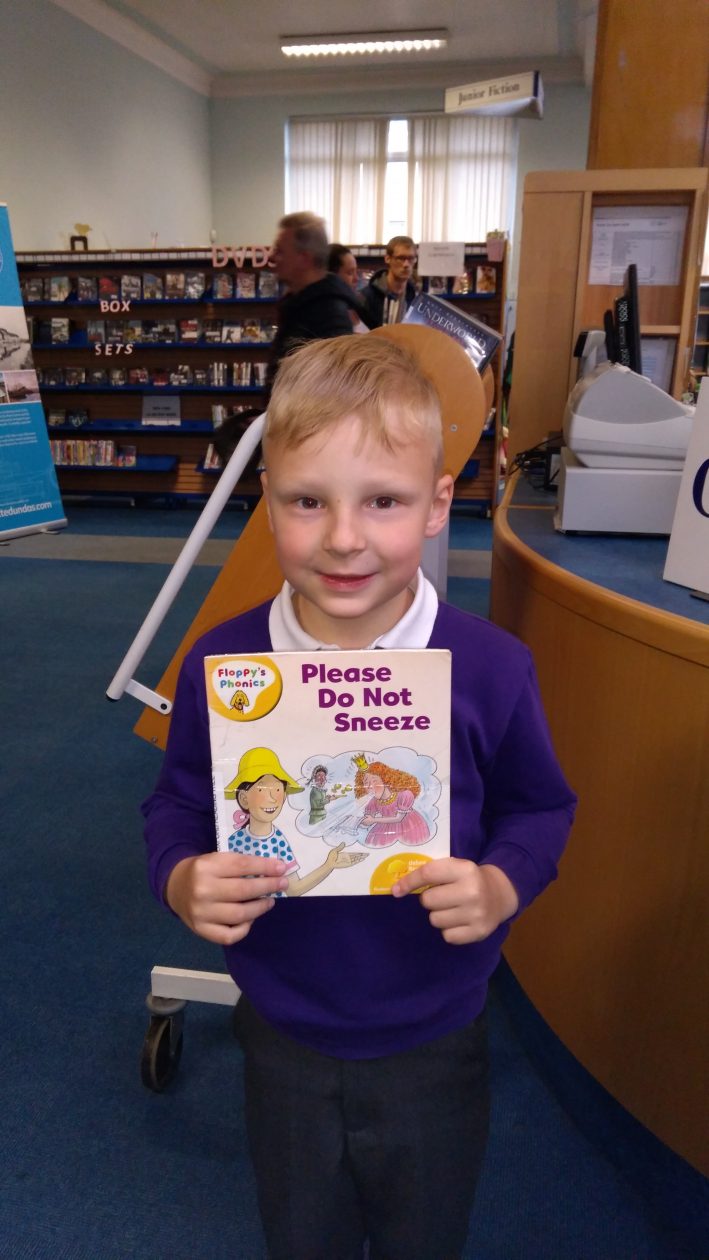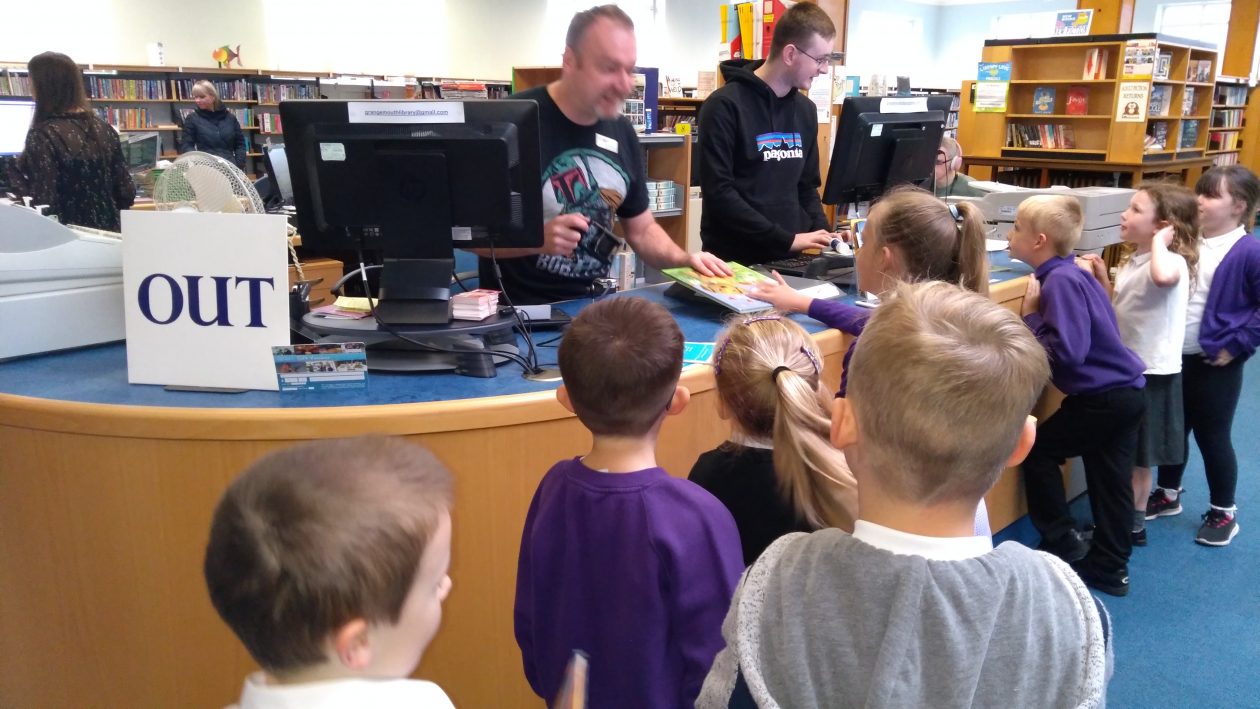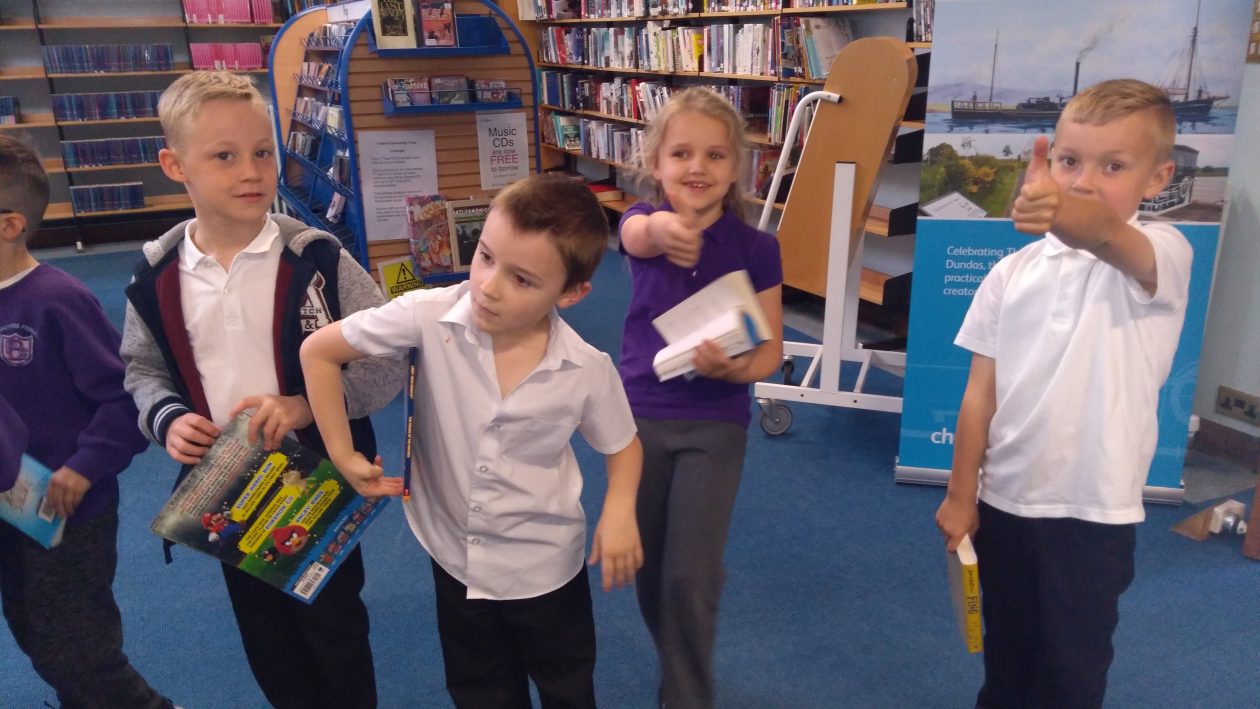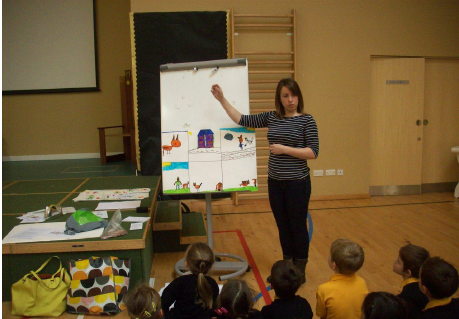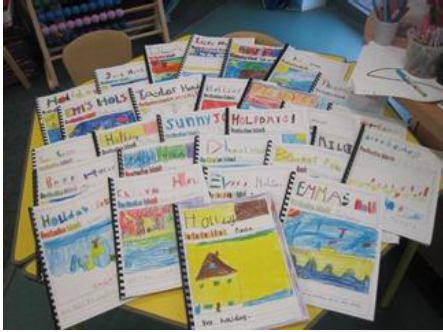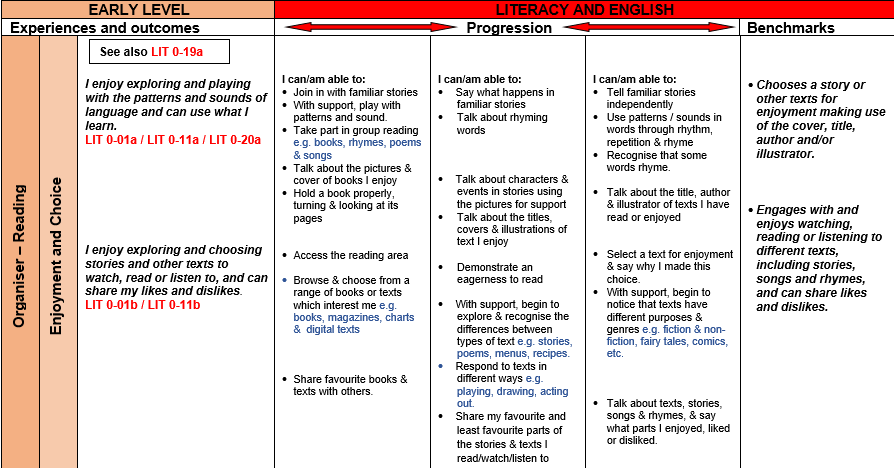
Earlier this session, Yvonne McBlain, curriculum support teacher, Falkirk Children’s Services, met with Charlotte McManus, Acting Depute Head teacher at Bowhouse Primary School to discuss literacy. Charlotte shared literacy teaching and learning which was going well in Bowhouse, including their focus at early level on rhyme, repetition and being playful with words through songs and actions. Charlotte kindly shared some of the picture books which Bowhouse colleagues use with primary 1 learners to support their progression of reading skills. We hope this list (see below) is useful to you – but please note other texts which are helping your learners by commenting upon this post? Together we can build an engaging plethora (love that word) of suggestions! These skills are highlighted by the extract from our Falkirk Literacy & English Progression Pathway pictured above.
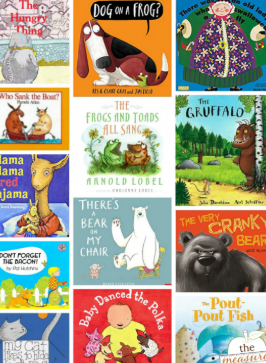
Early in Term 1 – Environmental sound book suggestions
1. Dear Zoo by Rod Campbell
2. We’re Going on a Bear Hunt by Michael Rosen
3. Farmyard Hullabaloo by Giles Andreae
4. Peace At Last by Jill Murphy
5. Quiet by Kate Alizadeh
6. Rabbits Nap (Julia Donaldson)
7. Lullaby Hullaballoo
Later in Term 1 – Authors who use rhyme
1. Julia Donaldson
2. Nick Sharrat ( Fairytales if focus is Fairyland)
3. Kes Gray (oi Frog!)
4. Jez Alborough
5. Giles Andreae
6. Quintin Blake
7. Lynley Dodd
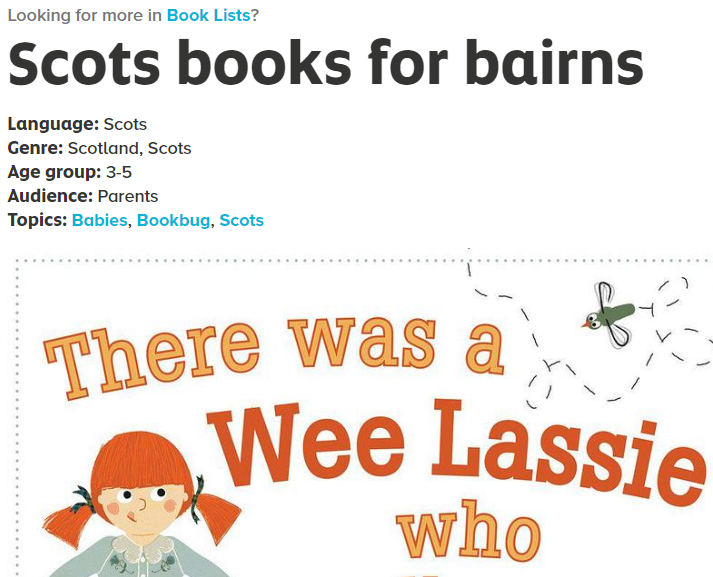
Term 2 – Books with repeated phrases
1. Jack and the Flum Flum Tree
2. Hairy McLary
3. The very Hungry Caterpillar
4. The Tiger who Came to Tea
5. The Gruffalo
6. Owl Babies
7. Handa’s Surprise
8. Mrs Mopple’s Washing Line
9. The Day Louis Got Eaten
10. Solomen Crocodile
11. Brown Bear Brown Bear what do you see?
12. Farmer Duck
13. Don’t Talk to the Bus Driver
The Scottish Book Trust website also has resources which develop similar literacy skills using Scots language and rhymes here – these may be useful for parents reading to their children at home too. Education Scotland National Improvement Hub resources point to this Words for Life section of the National Literacy Trust website. It offers guidance for parents on literacy activities and milestones in talking and reading which may also be helpful for family learning.

